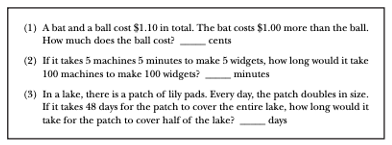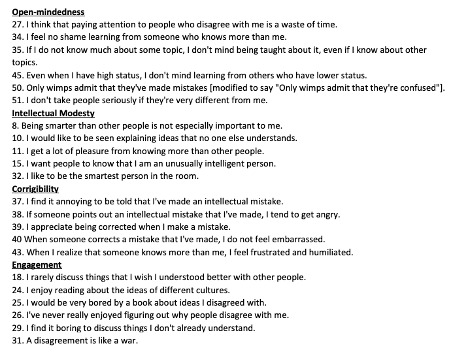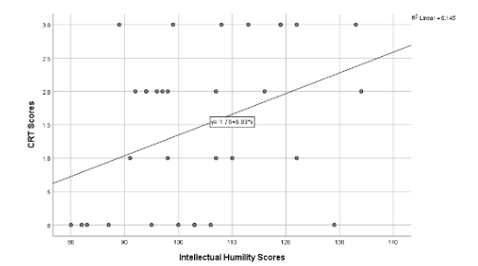Author
Mansi Verma
Mentor
Kristin Kirchner
Psychology 228 (Laboratory in Psychology) is a capstone class for psychology majors and minors. The main goal of the course is the completion of an independent research project, which the student develops themselves from idea to data analysis over the course of the semester. The instructional team is led by faculty member Dr. Melanie Palomares and dedicated graduate students. The 2019-2020 graduate student team consisted of Wendy Chu, Kristin Kirchner, Samantha Langley, Jaleel McNeil, Jonathan Rann, and Daria Thompson.
Students were encouraged to develop a study based on their personal interests such as social media, interpersonal relationships, or exercise. Following certification in human subjects training, the students collected data by deploying surveys and assessments to their target demographic. Students analyzed and interpreted their data using SPSS, a statistical software. Students then wrote a full length, APA style research paper about their project. Students from this class acquired several skills such as responsible research conduct, survey creation, statistical software analysis, and professional writing. This class provided the opportunity for undergraduate students to preview the graduate student research experience. The students published here went the extra mile and prepared their research papers for this publication, which often included additional, more sophisticated data analysis and new research questions.
Abstract
The present study investigated whether there was a relationship between intellectual humility and decision-making. The participants were 32 undergraduate students recruited from the University of South Carolina. Data was collected through self-reported measures of intellectual humility from the participants and their answers to questions testing for decision-making ability in a single survey. Results indicate that there is a correlation between the scores on the Intellectual Humility Scale and CRT scores. Overall, there does appear to be a relationship between intellectual humility and decision-making.
Intellectual Humility and Decision-Making Ability
Is there a link between intellectual humility and decision-making ability? Intellectual humility is defined as the ability for individuals to realize their potential fallibility when developing their attitudes (Zmigrod et. al., 2019). It consists of open-mindedness, intellectual humility, corrigibility, and engagement (Alfano et. al, 2017). If there is a connection between intellectual humility and decision-making ability, then there would be more justification to push for programs that help people become intellectually humble. However, the direction of this relationship remains unknown and in need of further clarification. Though it seems possible that people often refuse to listen to others who disagree with them and remain close-minded about their beliefs. If their ability to make decisions is tied to intellectual humility, that may help motivate them to improve their ways. Intellectual humility has been associated with knowledge acquisition, including reflective thinking, need for cognition, and intellectual engagement (Krumrei-Mancuso et al., 2019). Cognitive flexibility and intelligence have also been associated with intellectual humility (Zmigrod et al., 2019). Considering how successful decision-making often incorporates these elements, intellectual humility may also have a relationship to decision-making.
Intellectual humility is connected to many cognitive traits. A study investigated the relationship between intelligence, cognitive flexibility, and intellectual humility (Zmigrod, et al., 2019). The experimenters tested whether there was an interaction between one or more of these traits. They looked for correlations between scores on a test for intelligence called the Raven’s Standard Progressive Matrices Task, scores on a test for cognitive flexibility called the Alternate Uses Task, and scores on an intellectual humility scale. The results found a relationship between cognitive flexibility and intellectual humility as well as intelligence and intellectual humility. There was also an interaction effect of how high cognitive flexibility is particularly valuable for intellectual humility in the context of low intelligence and vice versa. Another study investigated how intellectual humility related to knowledge acquisition (Krumrei-Mancuso et al., 2019). The experimenters looked for correlations between scores on the intellectual humility scale and scores on tests of three variables of knowledge acquisition (indicators of past knowledge acquisition, meta-knowledge, and thinking styles, interpersonal dispositions, and learning goals that may contribute to knowledge acquisition). The experiment found that intellectual humility had a positive correlation with knowledge acquisition. It predicted most (though not all) cognitive traits involved with knowledge acquisition. Decision-making ability may be yet another cognitive trait connected to intellectual humility. Seeking for a relationship between the two would further add to the knowledge of how intellectual humility operates as a construct.
To establish a link between humility and decision making, there needs to be a reliable way to measure decision-making ability. The Cognitive Reflection Test has emerged as a popular method to test for decision-making ability. The original study devising the CRT investigated whether the cognitive ability to reflect on an intuitive answer predict decision-making ability (Frederick 2005). The experimenters tested for whether there was a correlation between CRT scores and the types of choices made in tests for decision-making theories. The experiment found that there was a relationship between the cognitive ability to reflect on an intuitive answer and decision-making ability. However, another study investigated whether numeracy plays a role in the ability of the CRT to test for decision-making ability (Sinayev & Peters, 2015). The experimenters tested whether intuition management (cognitive reflection) alone will account for the effects of the cognitive reflection test on decision-making ability. They looked for correlations between CRT scores, scores for numeracy tests, and tests for decision-making competence. They found that numeracy does play a significant role in the effects of the cognitive reflection test on decision-making ability. Cognitive reflection alone cannot fully account for its success as a test for decision-making ability. Both studies demonstrate the effectiveness of CRT as a measure of decision-making ability. This study will add to this literature by using CRT as a way to measure decision-making ability and seeing if it has a connection to intellectual humility.
The hypothesis is that there is a correlation between intellectual humility and decision-making ability. If a statistically significant relationship between each variable is found (based on the scores on the tests for each variable), then the study will confirm a relationship between the two variables.
Method
Participants
The participants were 32 undergraduate students recruited from the University of South Carolina. There were 4 males and 28 females. The sample was racially diverse. The racial demographics of the participants were as follows. 19 White, 2 African-American, 2 Hispanic, 8 Asian, and 1 American Indian. 29 participants were Non-Hispanic and 3 were Hispanic. Participants were recruited by sending the survey to other undergraduate students through social media and messaging services such as Facebook.
Materials and Procedures
Data was collected through self-reported measures of intellectual humility from the participants and their answers to questions testing for decision-making ability in a single survey. A Google Form was created for the survey. The study was conducted by sending a link to this Google Form out to the participants via email, social media, or text. The survey had 25 questions (3 for testing decision-making ability and 22 for testing intellectual humility). It took around five to ten minutes to complete.
The questions for testing decision-making ability were from the Cognitive Reflection Test (Frederick 2005). The CRT uses three questions designed to have an intuitive but wrong answer that participants must overcome to arrive at the correct answer (Appendix A). This measure also relies on numeracy, a strong predictor for effective decision-making (Sinayev & Peters, 2015). The answers from the respondents will be coded on a three point scale based on the amount of questions they got correct. 3 will indicate good decision-making ability, 2 will be less on, and so on. Each participant will have an individual CRT score.
The questions for testing intellectual humility were from the Intellectual Humility Scale (Alfano et. al 2017). This scale covers multiple categories that are each considered a facet of intellectual humility (Appendix B). Each question was a statement that participants were asked to rate their level of agreement with. They chose a number from a scale ranging from 1 (strongly disagree) to 7 (strongly agree) in response to each question. Some of the questions in the intellectual humility test were reverse-worded so the reverse of their scores was used when adding up the total intellectual humility score. For example, questions with answers on the agree end of the scale for positive traits such as intellectual modesty used the recorded score but questions on the agree end of the scale for negative traits such as intellectual arrogance used the score equally opposite to the recorded score. The sum of the responses for every question on the scale was calculated for each participant in order to create an overall score on intellectual humility for each participant.
Survey results were analyzed with a test on SPSS software. This test was a Pearson’s correlation to determine the relationship between CRT scores and scores on the intellectual humility scale.
Results
The study hypothesized that there would be a correlation between intellectual humility and decision-making ability based on scores on the Intellectual Humility Scale as well as CRT scores. A Pearson’s correlation was conducted to test this hypothesis. The Pearson’s correlation analyzed the relationship between CRT scores and scores on the Intellectual Humility Scale. Both were dependent variables used to measure decision-making ability and intellectual humility.
A Pearson’s correlation analysis was conducted on CRT scores (M= 1.47, SD= 1.191) and scores on the Intellectual Humility Scale (M=103.94, SD= 14.591). Results showed that there was a significant positive correlation, r (30) = 0.38, p < .05. The scatterplot of the data demonstrates this positive relationship between decision-making ability and intellectual humility (Appendix C).
Discussion
In this study, I attempted to determine whether there was a relationship between intellectual humility and decision-making ability. Participants completed a survey with questions from the CRT to test decision-making ability and questions from the Intellectual Humility Scale to determine the level of intellectual humility. Results indicate that there is a correlation between the scores on the Intellectual Humility Scale and CRT scores. These results supported the hypothesis that there is a relationship between intellectual humility and decision-making ability.
The connection between intellectual humility and decision-making adds onto the literature establishing the traits associated with intellectual humility. Previous research found a relationship between cognitive flexibility and intellectual humility as well as intelligence and intellectual humility (Zmigrod et al., 2019). Previous research has also found that intellectual humility had a positive correlation with knowledge acquisition (Krumrei-Mancuso et. al., 2019). Decision-making is another cognitive trait that now appears to be associated with intellectual humility.
The findings from this study also add to the literature about the CRT. Previous research has found a connection between the cognitive ability to reflect on an intuitive answer and decision-making ability (Frederick 2005). Numeracy also plays a significant role in the effects of the cognitive reflection test on decision-making ability (Sinayev & Peters, 2015). Intellectual humility also appears to be related to the CRT.
This study has multiple limitations. The participants were not randomly sampled, limiting the generalizability of the results. They were instead recruited through convenience sampling. The participants were only college students, further limiting generalizability. The sample size was only at a small to moderate level of 32 participants. The gender ratio was largely skewed towards females. The three-item version of the CRT was used, which may have limited the ability to properly capture decision-making ability. Future studies may want to use a more in-depth version of the CRT for measuring decision-making ability. Overall, the study was limited in generalizability despite capturing an effect.
Future studies can address these limitations and delve deeper into the nature of the tests involved in the study. For example, a study could replicate this study with a larger sample size and a version of the CRT with more questions. Given that the CRT was used as the measure for decision-making, the question occurs as to whether cognitive reflection or numeracy is what accounts for the relationship with intellectual humility. Future studies can devise tests that differentiate the two and test for their relationships with intellectual humility. The potential relationship between decision-making and intellectual humility as found in this study could be a spark for further inquiry into the personality foundations for successful decision-making. Furthermore, researchers could investigate if there is a causal component to this relationship. Manipulation of intellectual humility could impact decision-making and vice versa.
About the Author
 Mansi Verma
Mansi Verma
I am a junior from Irmo, South Carolina. I am a Psychology major and Philosophy minor. My career goal is to pursue a Ph.D in cognitive psychology or cognitive science and continue further research in the field, particularly in the area of decision-making. My motivation for this project came from an interest in understanding how people can make more objective decisions. Being able to admit to intellectual shortcomings seemed like a natural way to look at things more objectively by mitigating the bias that comes from overestimating one’s knowledge, so I wanted to test if there was a correlation. Working on this project has enhanced my professional pursuits by giving me the opportunity to create and conduct my own research project in psychology for the first time. I thank my mentor, Kristin Kirchner, for assistance with the project and manuscript, and Dr. Palomares for teaching the Psyc 228 class I did this project for.
References
Alfano, M., Iurino, K., Stey, P., Robinson, B., Christen, M., Yu, F., & Lapsley, D. (2017). Intellectual Humility Scale. PsycTESTS.
Frederick, S. (2005). Cognitive Reflection and Decision Making. Journal of Economic Perspectives, 19 (4): 25-42.doi: 10.1257/089533005775196732
Krumrei-Mancuso, E. J., Haggard, M. C., LaBouff, J. P., & Rowatt, W. C. (2019). Links between intellectual humility and acquiring knowledge. The Journal of Positive Psychology. doi: 10.1080/17439760.2019.1579359
Sinayev, A., & Peters, E. (2015). Cognitive reflection vs calculation in decision making.Frontiers in Psychology, 6. doi: 10.3389/fpsyg.2015.00532
Zmigrod, L., Zmigrod, S., Rentfrow, P. J., & Robbins, T. W. (2019). The psychological roots of intellectual humility: The role of intelligence and cognitive flexibility. Personality and Individual Differences, 141, 200–208. doi: 10.1016/j.paid.2019.01.016
Appendix A: The Cognitive Reflection Test (CRT)
Appendix A. Table containing the questions for the Cognitive Reflection Test.

Appendix B: Intellectual Humility Scale
Appendix B. List of questions on the Intellectual Humility Scale.

Appendix C: Scatterplot of CRT and IH scores
Appendix C. Scatterplot comparing CRT scores and intellectual humility scores; there was a positive, significant, linear relationship (R2 = 0.145).

